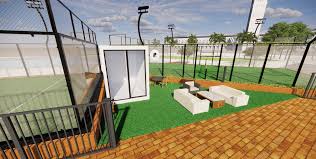

The Thrill of Indoor Racquetball A Comprehensive Overview
Indoor racquetball is an exhilarating sport that combines speed, agility, and strategy, making it a favorite for players of all ages and skill levels. As an indoor game, it provides a unique opportunity to engage in physical activity regardless of weather conditions, making it a popular choice in various regions. This article will dive into the essentials of indoor racquetball, including its history, rules, equipment, health benefits, and how it can foster social connections.
A Brief History
Racquetball was invented in 1949 by Joseph Sobek, an American racquet sports enthusiast. Originally developed as a way to combine elements of squash and handball, the game quickly garnered popularity. By the 1970s, racquetball had solidified itself as a mainstream sport in the United States, with formal competitions beginning to take shape. The establishment of governing bodies like the International Racquetball Federation in the following decades helped to standardize rules and promote the sport on an international level.
The Objective and Rules
The main objective of indoor racquetball is to hit the ball against the front wall in such a manner that your opponent fails to return it before it bounces twice on the floor. The game can be played in singles (one-on-one) or doubles (two players on each team). Each match is typically played to 15 points, and players must win by two points in order to claim victory.
The basic rules involve the following
1. Serving The player serving must hit the ball to the front wall, and it must pass the short line before the opponent can play it. 2. Rallies Players alternate hitting the ball until one fails to return it, resulting in a point for the opponent. 3. Faults and Appeals Similar to tennis, a player may incur faults for improper serves or hitting the ball out of bounds. There are also provisions for appeals in case of disagreements about the play.
Essential Equipment

To play racquetball, players need a few essential pieces of equipment
- Racquet An indoor racquetball racquet is typically lighter and shorter than a tennis racquet, allowing for quick swings and rapid reactions. - Ball The official racquetball is made of rubber and is smaller than a tennis ball, designed to produce a different bounce and speed. - Protective Eyewear Safety is paramount in racquetball, and players are encouraged to wear goggles to protect their eyes from accidental hits. - Footwear Non-marking shoes with good traction are essential for quick movements on the court.
Health Benefits
Playing indoor racquetball offers numerous health benefits. It provides an excellent cardiovascular workout, helping to improve heart and lung capacity. The sport also enhances agility, coordination, and overall muscular strength since players constantly move and react to the ball. Furthermore, the fast-paced nature of the game can help reduce stress and improve mental well-being, making it an ideal choice for those looking to balance their physical and mental health.
Social Connections
One of the most underrated aspects of indoor racquetball is the social component it fosters. The sport encourages camaraderie among players, whether they are competing in tournaments or just playing for fun. Many clubs and recreational centers offer leagues and social events, providing opportunities for players to meet new friends, network, and bond over shared experiences.
Conclusion
Indoor racquetball is more than just a sport; it is a thrilling experience that combines physical fitness with social interaction. Its rich history, straightforward rules, essential equipment, and numerous health benefits make it an appealing choice for individuals seeking fun and fitness. Whether you are a seasoned pro or a beginner looking to pick up a new hobby, indoor racquetball offers a dynamic environment that promises excitement and engagement. So grab your racquet, put on your goggles, and step onto the court—an adventure awaits!
Durable Industrial Flooring Solutions for Factories & Padel Courts Custom
PVC Sports Flooring Durable, Shock-Absorbent & Safe
Premium Homogeneous Transparent Floor Durable, Slip-Resistant Rubber
Premium Rubber Composite Flooring Slip-Resistant & Durable
Premium Rubber Flooring Durable & Slip-Resistant Safety
Premium Rubber Brick Flooring - Durable, Eco & Slip-Resistant